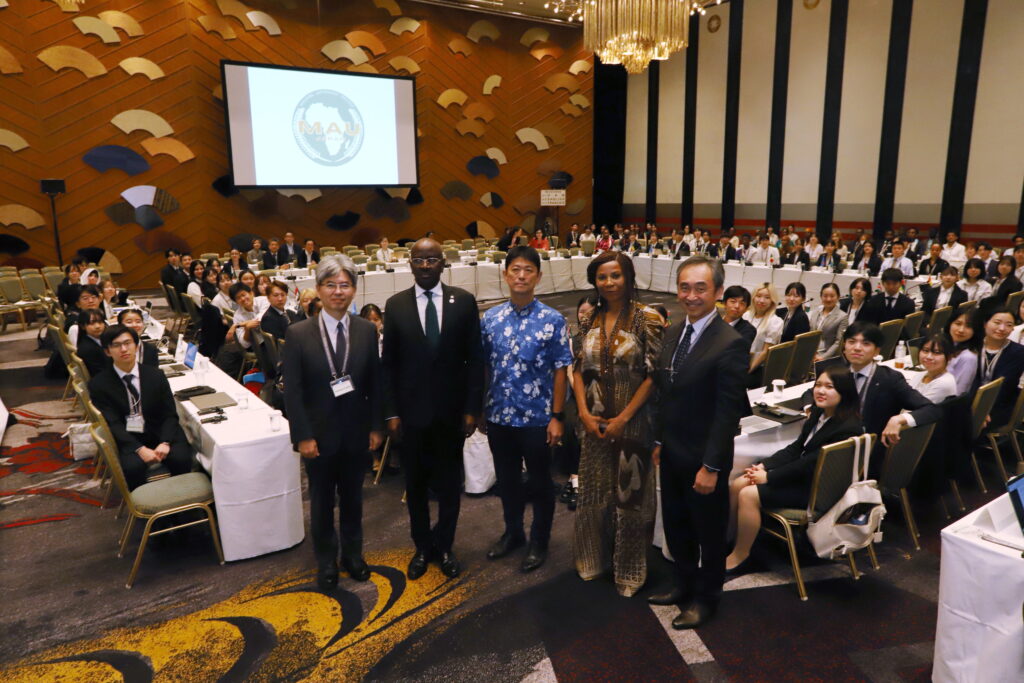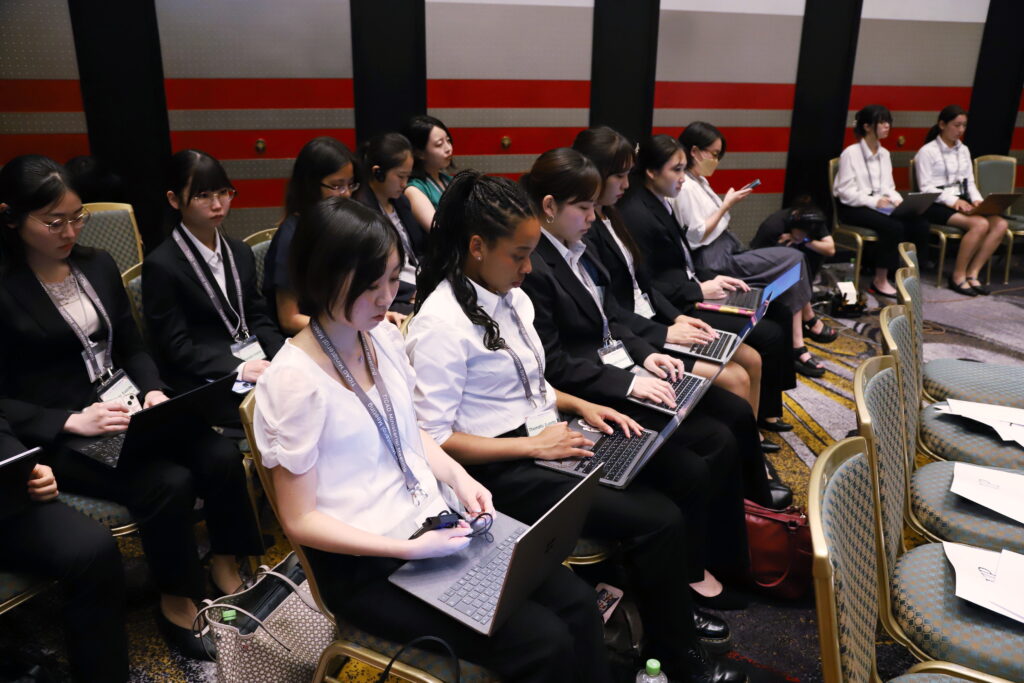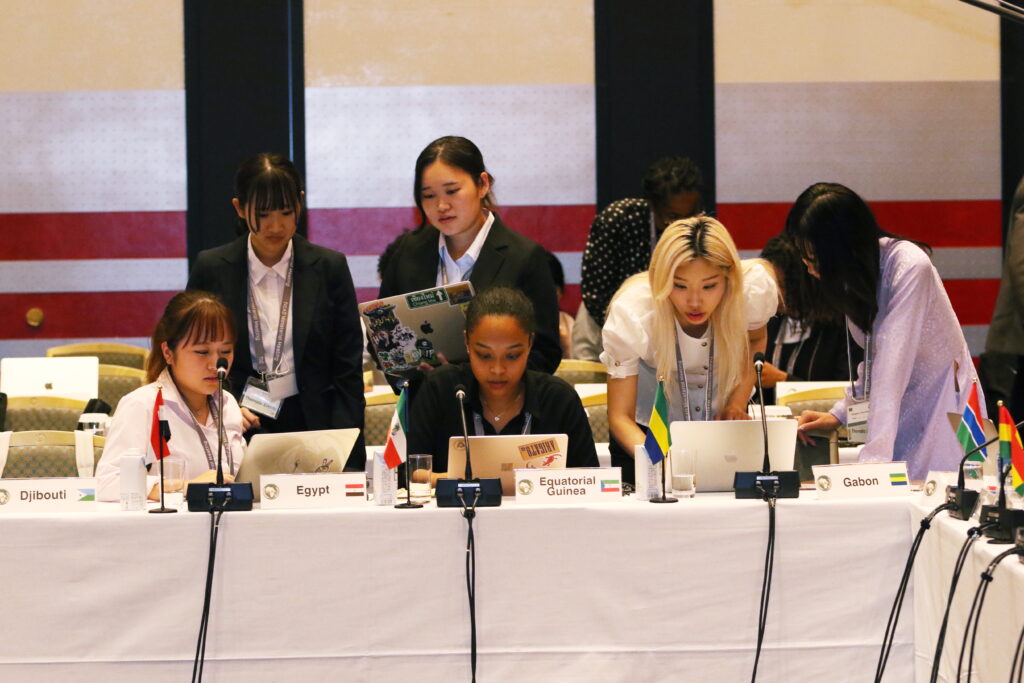
Japanese and African Students Team Up to Tackle Policy-Making Challenges
On August 23, Sophia University co-hosted Japan’s first Model African Union Meeting. This event aimed to deepen Japanese youth’s understanding of Africa by having students simulate the roles of representatives from African Union (AU) member countries. The meeting was co-organized by JICA (Japan International Cooperation Agency), UNDP (United Nations Development Programme), and Sophia University.
The event was held as a thematic event of the TICAD Ministerial Meeting in Tokyo from August 24 to 25, ahead of the upcoming TICAD 9 in Yokohama next year. It garnered significant attention as a pioneering effort for young people to actively engage in discussions on sustainable development and partnerships with African nations.
During the Model AU Meeting, groups of 2-3 students formed delegations for each country. African international students and trainees participated as mentors, and several embassies in Tokyo provided advice. Seven students from Sophia University served as ambassadors, while 12 students supported the meeting’s operations as rapporteurs. The rapporteurs received prior guidance from Professor Yasuhiro Ueki, a former UN information officer, which contributed to the drafting of resolutions and facilitated discussions between international and Japanese students.

The morning session was held at the Yotsuya Campus Building 6, and the afternoon plenary session took place at Hotel New Otani. At the opening ceremony, Ahunna Eziakonwa, Director of UNDP’s Africa Bureau, emphasized the significance of the Model AU Meeting, stating, “This meeting is a platform for collaboration between Japanese and African youth, strengthening their relationship. As interest in Africa grows, we look forward to the leadership of young people who will drive future change.”
Participants, representing AU member countries, engaged in discussions on issues such as the green economy and climate change, culminating in the adoption of a resolution by majority vote. The resolution, crafted through repeated negotiations amidst differing national interests, was met with cheers and applause from the audience.

Tamaki Janeth Kubo, a second-year student from the Faculty of Global Studies who participated as the representative of Equatorial Guinea, reflected on the experience: “By embodying the role of an ambassador, I was able to concretize the relationships with other countries and the challenges faced by my assigned country, which I couldn’t learn from regular studies. It was a highly meaningful day, broadening my perspective on the topics while deepening connections with students interested in Africa from across the country.”
In a speech by the rapporteur student representative, it was expressed, “Amidst heated discussions about the future of Japan and Africa, I strongly felt that we must not give up on understanding each other, despite differences in language and perspectives.”
At the closing ceremony, Vice President for Academic Affairs Takashi Irohara praised the participants for their efforts in engaging in long discussions. He concluded the Model AU Meeting by stating, “There are many aspects to learn from Africa, including diversity, culture, and the pace of social change. It is highly significant for both Japan and Africa to have opportunities to understand and learn from each other, and as a higher education institution, we aim to continue providing such opportunities.”
Currently, Sophia University has agreements with 17 institutions across 14 African countries and collaborates with international organizations like the African Development Bank. The university also offers study abroad programs in Africa and engages in educational and research exchanges with the region through its Faculty of Global Studies, Graduate School of Global Studies, and Institute of Asian, African, and Middle Eastern Studies. These activities laid the foundation for hosting the Model AU Meeting.